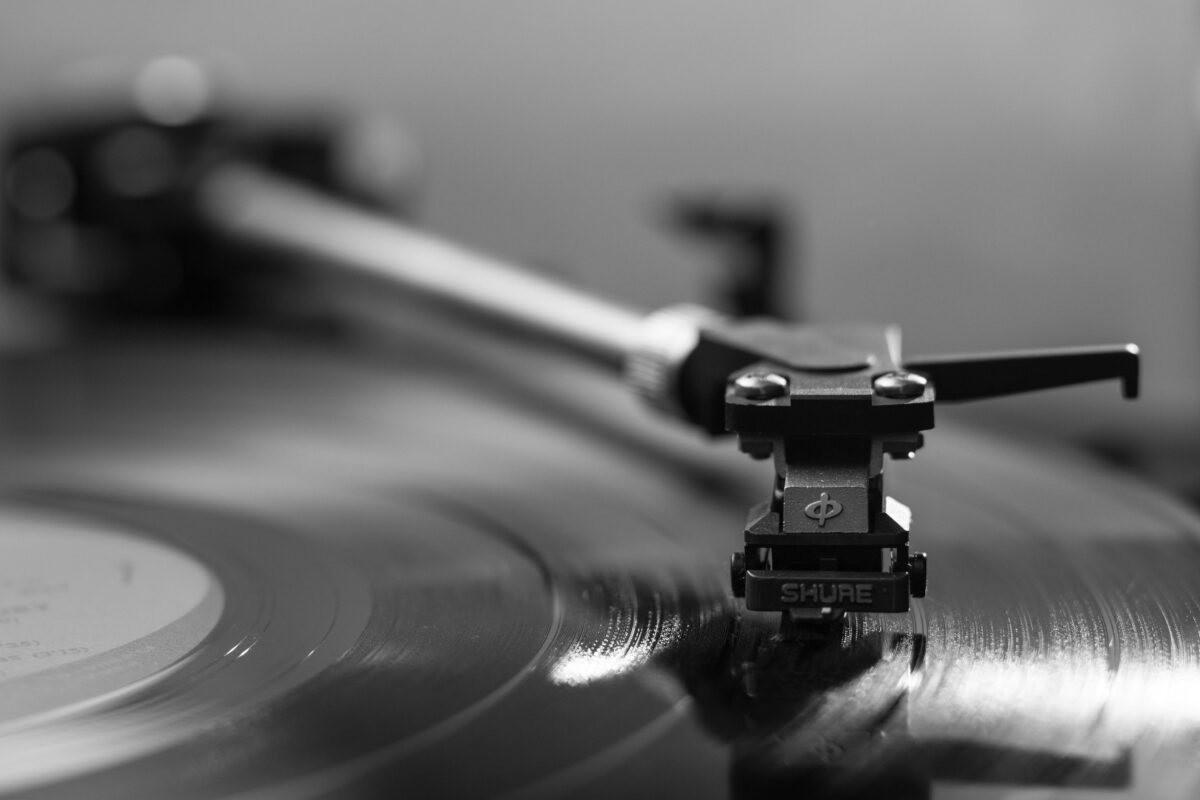
The story of the fruition of David Byrne’s American Utopia begins, ironically, with what you’d expect to be the endpoint: the album’s release in 2018. Debuting at number 3 on the Billboard 200, American Utopia owed its success to Byrne’s return, after many years of soundtrack work and musically-experimental collaborations, to the crisp song structures and askew sensibilities that characterized his years with Talking Heads. Further, Utopia boasted some truly standout tracks. Exhibit A: “Every Day is a Miracle,” which, with its irresistible singalong chorus, ranked alongside Byrne’s best.
Lyrically, American Utopia continued Byrne’s fascination for seemingly-insignificant slices of American life. However, this time out, he traded cynicism for a notably sunnier outlook. “We’re only tourists in this life,” he sang in “Everyone’s Coming to My House.” “Only tourists but the view is nice.”
All that said, several factors kept American Utopia from reaching its full potential. The credits listed no fewer than 27 musical contributors, an assemblage that at times proved unwieldy and plodding. Then there was Byrne’s singing, which was uncharacteristically but consistently out of tune. An equal-opportunity intonation violator, Byrne was sharp as often as he was flat. That didn’t exactly ruin the music, but it sure was annoying. And while half the album featured undeniably worthy songs, the other half was subpar.
As it turned out, though, Byrne was just getting started. In late 2018, he took the Utopia material on a month-long international road trip. For that enterprise, Byrne slimmed the band down to 12 musicians. That change, in turn, called for more streamlined arrangements. Byrne obliged, and in doing so found the emotional heart of each song. Meanwhile, the set list culled out the weaker Utopia material and supplemented it with astutely-curated selections from Byrne’s rich Talking Heads and solo-career catalogs. As you might imagine, the tour was a smash.
Next came a year’s hiatus, during which Byrne further tweaked the set list, arrangements, and staging. Then, in his boldest move yet, he took the revamped show to Broadway. Unfortunately, Covid-19 forced an end to the sold-out run. But there was a consolation prize. Later in 2020, we learned that Spike Lee had directed—and HBO had produced—a film version of the Broadway show. In conjunction with the movie’s release, along came American Utopia on Broadway (Original Cast Recording). And that’s how we can finally hear this music in full flower.
The album is many things: a retrospective of Byrne’s prolific career; a chronicle of a unique performance; a live recording that gets the sound just right; and a showcase for the stupendous 12-piece band that Byrne assembled with musicians from all over the world. All of them, particularly the six drummers Byrne deploys to faithfully create his trademark polyrhythms, are simply non pareil. They can sing, too, as you’ll well appreciate on the a cappella renditions of “One Fine Day” and the opening to “Road to Nowhere,” both of which are spellbinding.
One obvious question about the Broadway version of American Utopia is whether it’s redundant of Talking Heads’ celebrated Stop Making Sense soundtrack. Both are live recordings, both have accompanying films made by noteworthy directors (Jonathan Demme, in the case of Stop Making Sense), and there is even some overlapping material. However, the two albums are very different. The premise of Stop Making Sense was that a band could be mutated—shrunken or expanded—in order to perfectly fit any song. In contrast, the American Utopia show illustrates how a broad range of material can be shaped to take advantage of one stellar ensemble. Also, David Byrne has written a lot of great material since Stop Making Sense was made, and Utopia covers the highlights.
I’ve already alluded to the album’s excellent sound. While the studio version’s sonics are quite respectable, they can’t touch the Broadway recording. It’s one of the fullest and most present-sounding live recordings I’ve heard in some time. I especially recommend the LP, with its quiet vinyl and natural tonality. But if you’re going digital, be sure to bypass the CD and opt for the excellent 24/96 downloads and streams. They offer impeccable openness and unforced detail. In any format, the original cast recording of American Utopia is a treat you don’t want to miss. Highly recommended.

By Alan Taffel
I can thank my parents for introducing me to both good music and good sound at an early age. Their extensive classical music collection, played through an enviable system, continually filled our house. When I was two, my parents gave me one of those all-in-one changers, which I played to death.
More articles from this editor





















